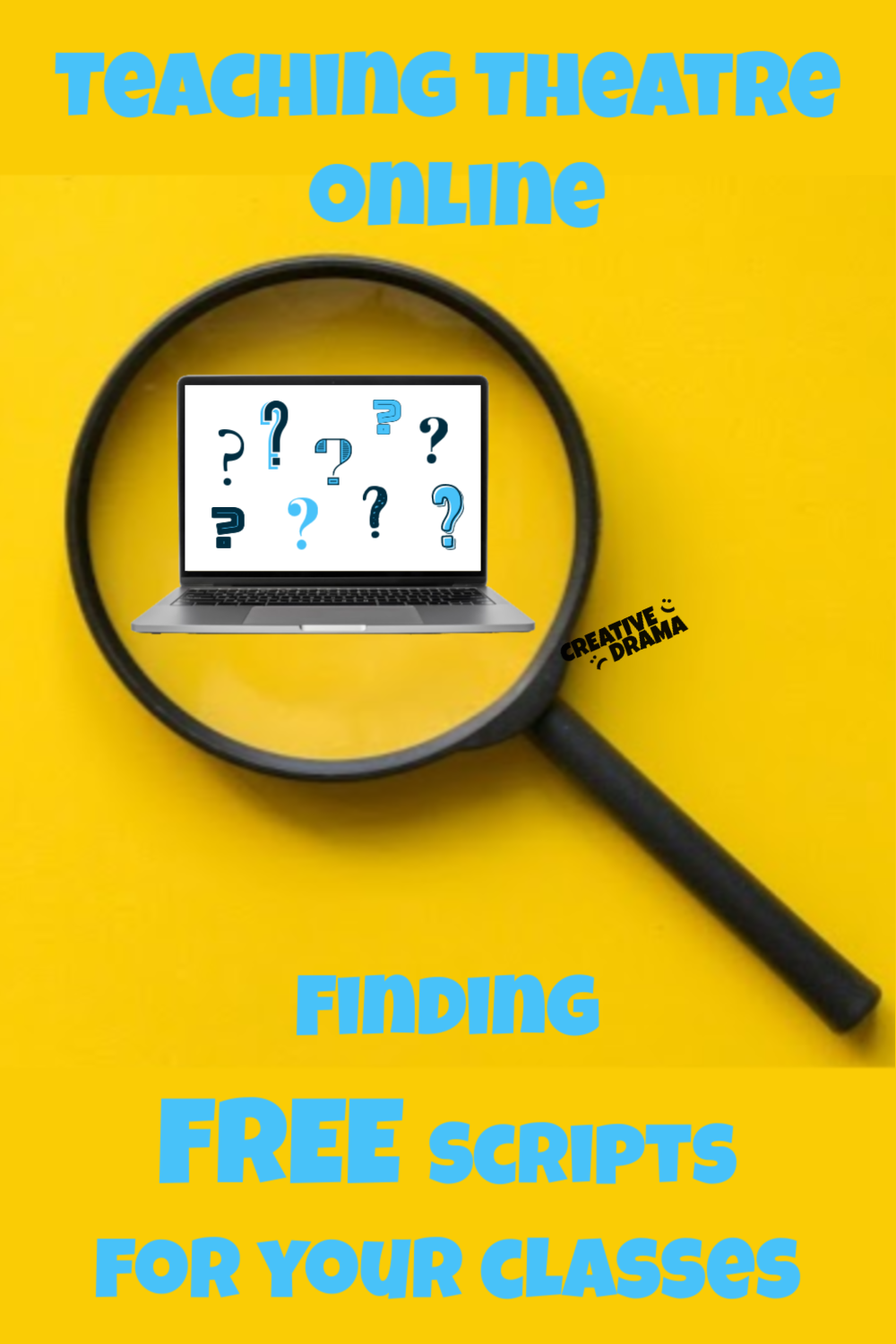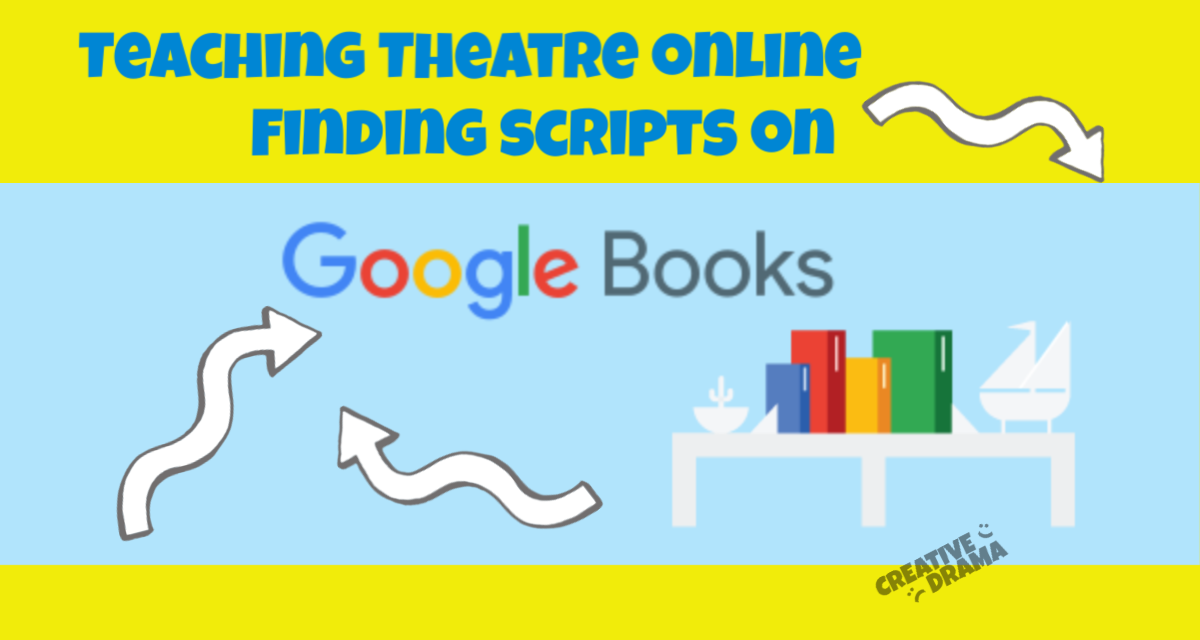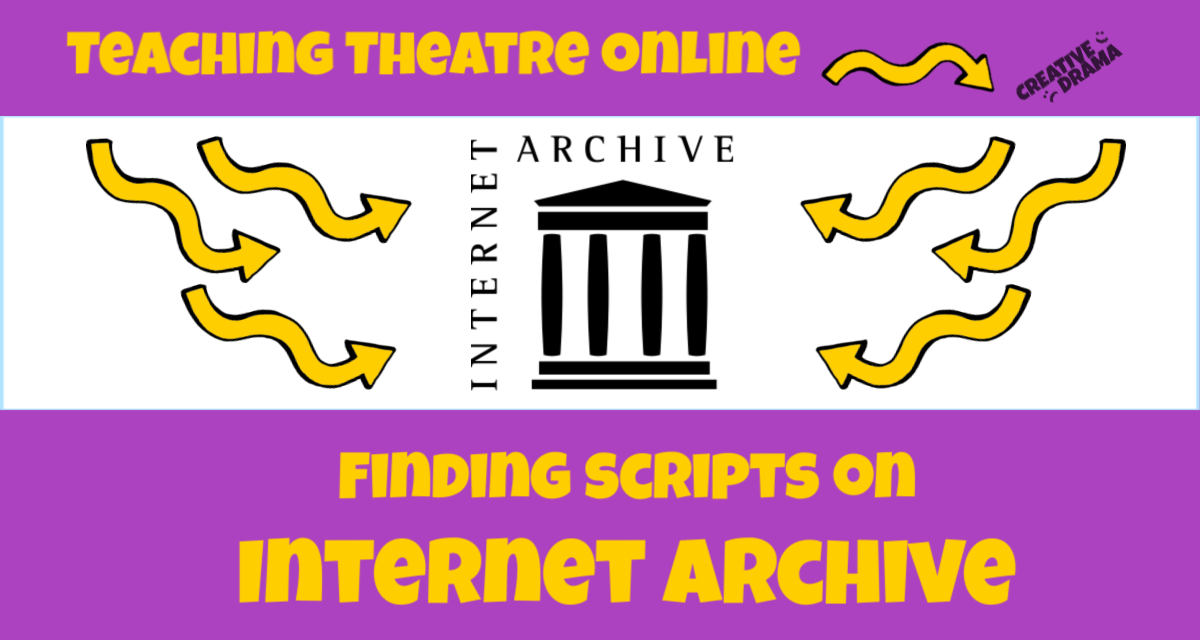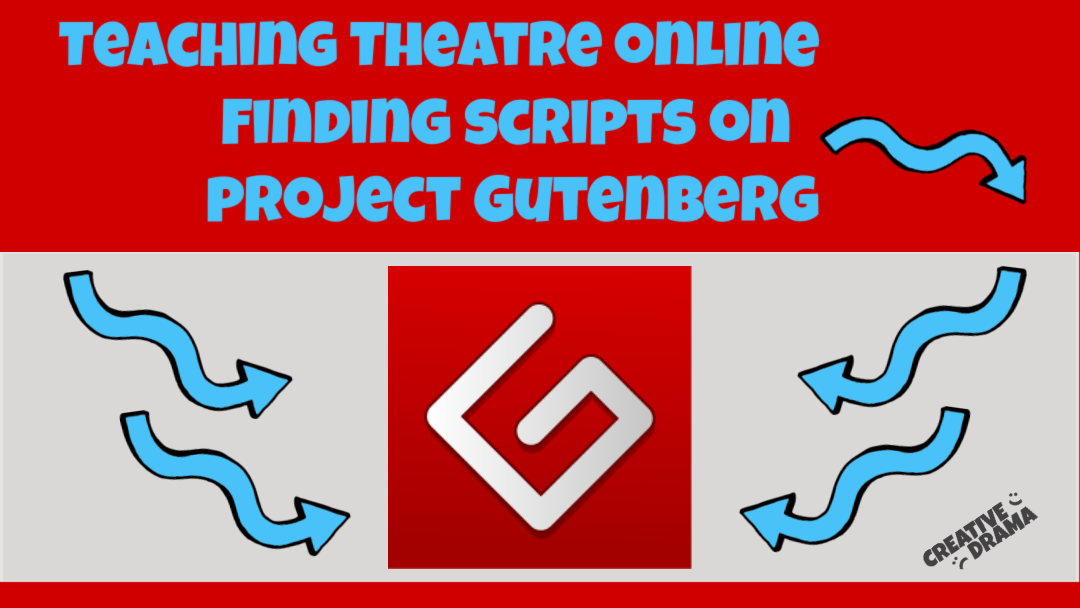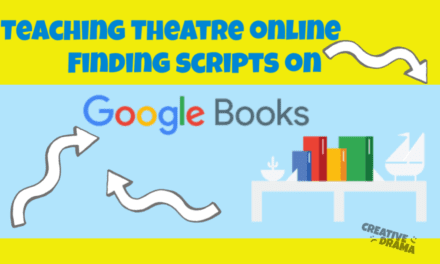Contents
Teaching Theatre Online – Finding Accessible Plays
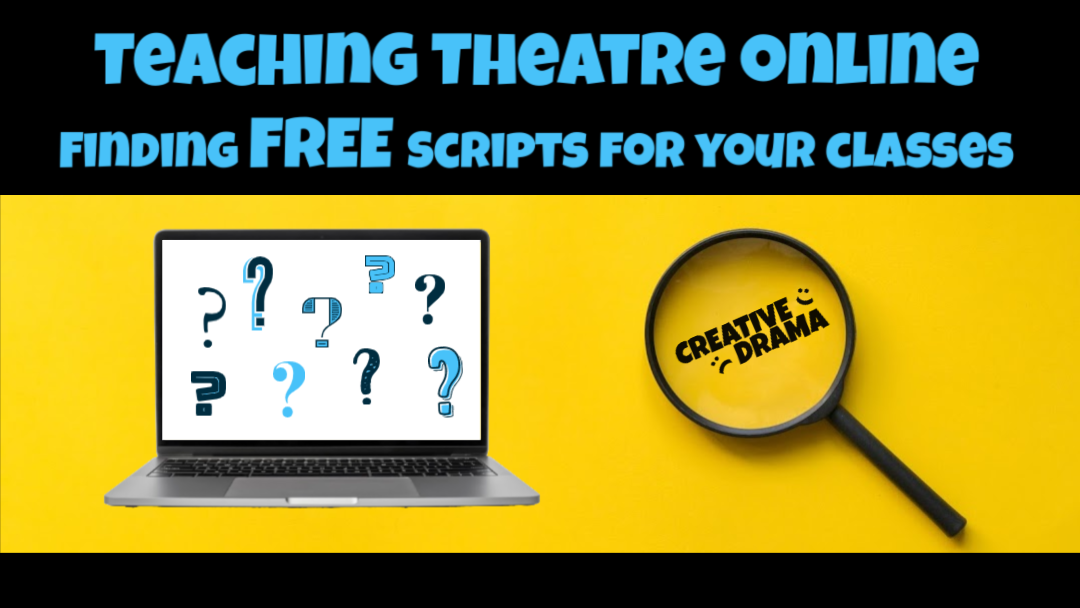
Teaching theatre online and looking for plays for your students? If your in-person classes have moved online, you’re probably trying to find ways to replace your well-curated classroom library of plays, scene books, and anthologies. Your students need to be able to access material without breaking your (or their) budget.
I’ve seen a multitude of requests for “online plays” in Facebook groups, message boards, and forums. Teachers-directors are most often looking for FREE scripts that their students can ACCESS readily.
Here’s a collection of resources for scripts that are free to read online. They are either openly available, or accessible when you provide an email address or set up an account.
Public Libraries
Your PUBLIC LIBRARY system likely has a digital lending program, like Overdrive or Libby, that allows anyone with a library card to borrow titles. If any of your students don’t have a library card, many public libraries are allowing patrons to sign up for accounts online during the pandemic. A subject search for “Drama” on my county library system’s Libby app returned almost 100 results, most of which were plays.
Here’s a link to some scripts available in the Billy Rose Theatre Collection of New York Public Library, including Arthur Richman’s The Awful Truth and Edith Wharton’s The Shadow of a Doubt. Most of these scripts are working copies, with additions, redactions, and actor’s notes. It makes them harder to read, but interesting to analyze.
RESOURCES FOR CONTEMPORARY WORKS
If you’re looking for recent scripts to read yourself, or independent assignments for your students, here are a few sources.
Play at Home
Play at Home is a web-based theatre company that commissions plays for people to read and perform in their homes. Downloading is free; Play at Home asks that you share any performances with them. You can sponsor a playwright if you choose!
Check out:
- The Greatest 10 Minute Musical Ever Written! by Timothy Allen McDonald & Rob Rokicki
- Mission Possible by Laurie Brooks
- Scary Adventure Kid Detective (title provided by five-year-old son Moe) by Finegan Kruckmeyer
- A Little Game by Asiimwe Deborah Kawe
Playscripts.com
Playscripts.com has free reads of their most popular scripts. You’ll need to create an account to access the pieces. Playscripts regularly updates the selection of plays.
At the time of publication, the page featured pieces by Ed Monk, Jon Jory, and Jonathan Rand along with adaptations of Guess Who’s Coming to Dinner and Oscar Wilde’s fairy tales.
YouthPlays
YouthPlays.com has free monologues and free scenes from the plays and musicals they license. Read the instructions for fair use guidelines.
RESOURCES for PUBLIC DOMAIN WORKS
If you’re looking for free and easily accessible works for your students, one way to make sure you’re using dramatic literature legally and ethically is to choose pieces in the public domain. The copyrights on these works have expired either due to their age or, in the rarer case of some works, neglectful rights holders.
One of the great advantages to using public domain works in your classes is that they can be performed, adapted, or parodied without your having to wrangle an online-video-internet-streaming license from the rights holders. Students can update public domain pieces, or make them satirical, without worrying about being sued by the original creators. Of course, the original playwrights of these pieces should receive due credit for inspiring new works; public domain doesn’t mean people are allowed to steal the work and claim it as their own.
Because most public domain works are at least 95 years old, they may be reflective of their times. Social mores have changed so significantly in the last century that you may find racist and sexist language or themes in pieces. The thematic values in these works – for children’s behavior, matters of etiquette, religious beliefs, etc. – reflect the culture in which they were written. For example, a dramatization of a folktale from China might use the archaic term “Oriental.” Please read any pieces you’re thinking of assigning to students in advance so that you’re aware of potentially challenging (or challenge-inducing) content.
The Complete Works of William Shakespeare
Shakespeare’s plays provide the most ubiquitous example of artistic reimaginings of public domain works. One of the earliest literary Internet projects MIT students embarked on, The Complete Works of William Shakespeare, has been one of my favorite teacher resources since 1993.
The site’s layout has remained fairly stable for its existence:
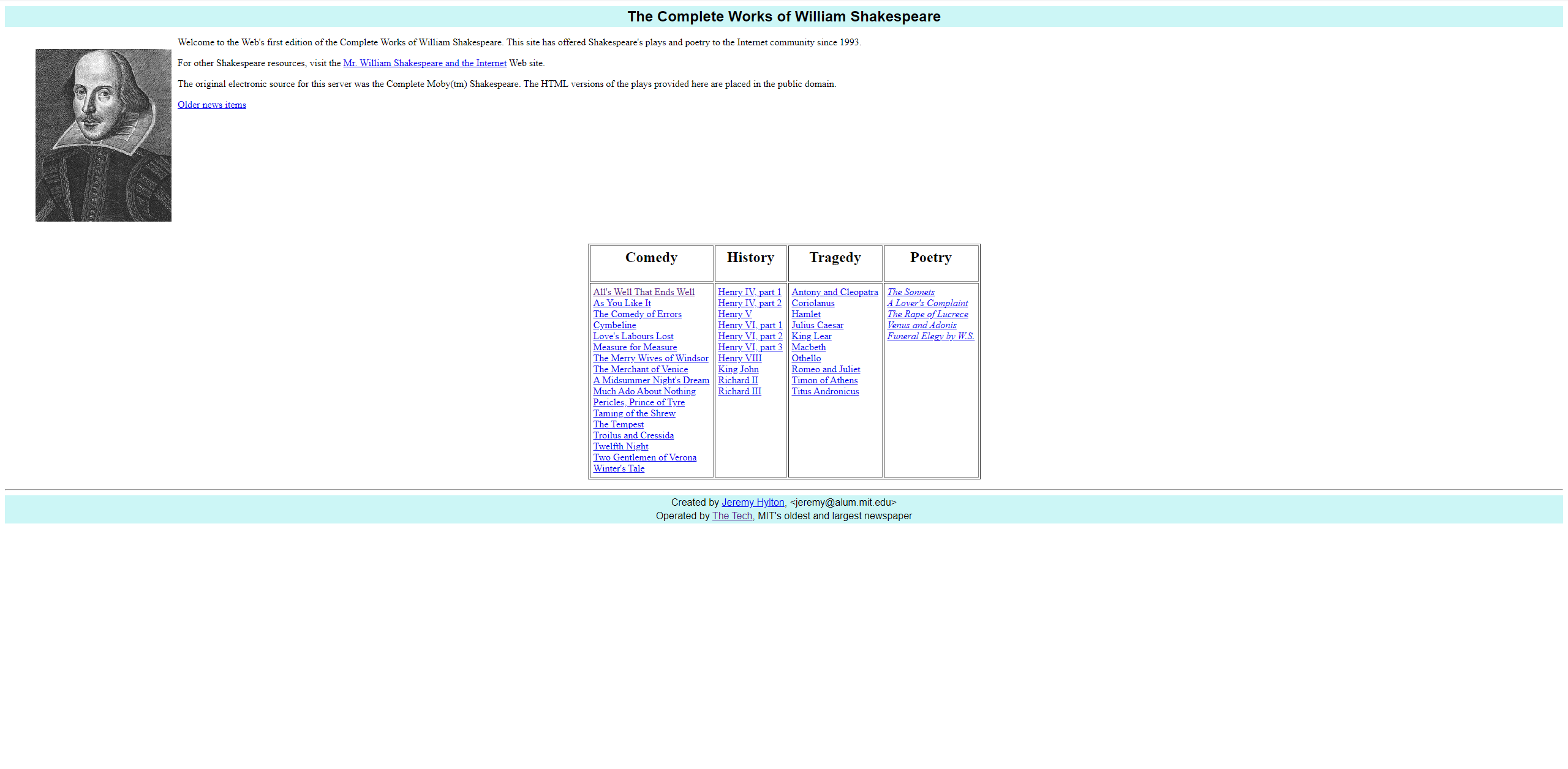
Screenshot of the homepage of The Complete Works of William Shakespeare
When you click on a play, you’ll find the options of going to the entire play on a single page, or directly to a particular act or scene.
You can search the full text of a play for words or phrases using your browser’s “Find in Page” tool, which is useful for a variety of text analysis assignments.
MIT can help you with the Bard, but what about other resources?
Here are posts about finding plays for your students on three major archives of literature:
I’ve focused on children’s plays and one-acts in the above posts because shorter reading assignments seem to be easier on students and teacher-directors at the moment. (See “A Side Effect of the Covid-19 Epidemic? Reading Got a Lot Harder” by Emma Petit on The Chronicle of Higher Education’s website).
